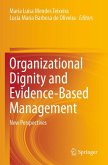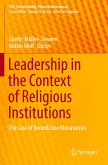This book discusses dignity in the organizational context. Combining diverse theoretical and methodological approaches, as well as empirical studies, this book examines the concept of dignity between organizations and a variety of stakeholders. Going beyond the traditional approach of the relationship between company and employees, and beyond the traditional perspective of human dignity in a Kantian or post-Kantian approach, this volume innovates by discussing dignity from different epistemic perspectives, bringing to the fore dignity, inserted in different organizational and cultural contexts.
The volume is divided into five parts. The first part is dedicated to the concept of dignity in the organizational sphere (dignity inside organizations, dignity between organizations and their stakeholders, and dignity in business-to-business relationships) discussed under different epistemic approaches.
The second part deals with dignity in the relationships between companies and employees. The third part deals with the relationship between companies and clients. The fourth part of the book studies business-to-business relationships, addressing the educational sector, restaurants, and microcredit. Finally, the fifth part focuses on the relationships between the organizational dignity construct and other constructs, such as stress, spirituality and trust. Opening new theoretical and methodological perspectives for the study of dignity, this book will be of use to researchers and students studying management, leadership, and business strategy, as well as management and HR professionals.
The volume is divided into five parts. The first part is dedicated to the concept of dignity in the organizational sphere (dignity inside organizations, dignity between organizations and their stakeholders, and dignity in business-to-business relationships) discussed under different epistemic approaches.
The second part deals with dignity in the relationships between companies and employees. The third part deals with the relationship between companies and clients. The fourth part of the book studies business-to-business relationships, addressing the educational sector, restaurants, and microcredit. Finally, the fifth part focuses on the relationships between the organizational dignity construct and other constructs, such as stress, spirituality and trust. Opening new theoretical and methodological perspectives for the study of dignity, this book will be of use to researchers and students studying management, leadership, and business strategy, as well as management and HR professionals.








